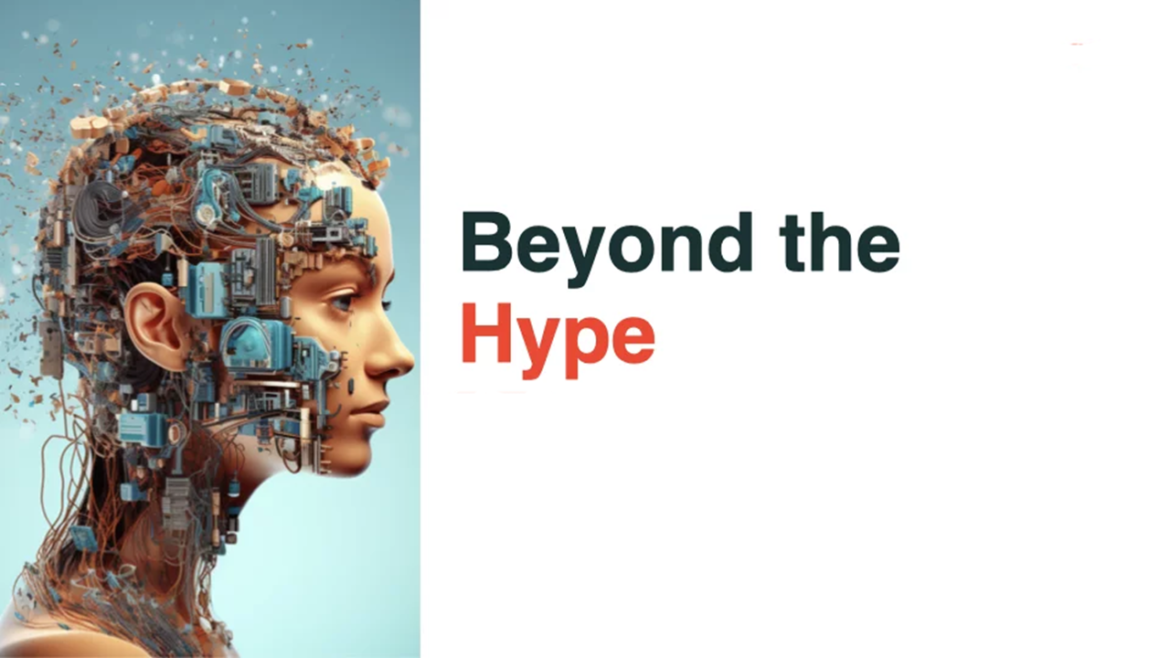By: Husam Yaghi
The tech world is abuzz with anticipation for the next game-changing AI tool, a crescendo of excitement unlike ever before. Influencers, from tech YouTubers to VR reviewers, lead the charge, hyping unreleased products with infectious enthusiasm. But this pre-release hype machine, churning up excitement for potential duds, can have real consequences for you and your data.
A reference case:
Jason Calacanis and Sunny Madra’s Podcast (This Week in Startups) show is a great platform for exploring the possibilities use cases for AI. Every Monday, they demo the latest tools and applications, sparking viewers’ curiosity and interest. While their enthusiasm for innovation is commendable, it’s important to remember that some of the products they showcase are still in early development stages.

Meta Ray-Ban Smart Glasses were hyped so much that I though I could do wonders with my pair. I was thrilled to have the first version, yet I was disappointed for the lack of applications (couldn’t do much with them). I wanted to use the glasses to read street signs and restaurants menu, but their AI engine was not ready for that yet. I gave it few prompts, but it was inferior compared to Bard and ChatGPT.
Early release of products with too much hype, could negatively impact a product. Limited availability of features for general users while allowing demos of those features could be misleading and could negative impact the brand. This highlights the importance of approaching pre-release hype with a critical eye, avoiding impulsive decisions based solely on excitement, and focusing on the practical value and ethical considerations of emerging AI technologies.
Fear of Missing Out (FOMO) as Fuel:
Influencers thrive on exclusivity. Discussing unreleased AI products positions them as tech oracles, attracting early adopters and boosting engagement. For consumers, however, this creates a dangerous FOMO. Imagine scrolling through feeds, bombarded with hype about a revolutionary AI assistant that cooks, folds laundry, and writes emails. Suddenly, your current devices feel obsolete, and you’re desperate to get your hands on this AI-tool, even months before release.
This FOMO-fueled hype can lead to impulsive decisions and unrealistic expectations. You might pre-order a product based solely on influencer hype, only to be disappointed when it finally arrives and falls short of the promises.
The Perils of Premature Hype:
Getting swept away by the pre-release hype has several downsides:
- Overpromising and Underdelivering: Early prototypes rarely translate seamlessly into final products. When reality falls short of expectations, disappointment and backlash can ensue, damaging both the influencer’s reputation and the product’s launch.
- Misinformation and Manipulation: Without the full picture, influencers might spread misinformation based on incomplete information or marketing materials. This leads to unrealistic expectations and a distorted perception of the product’s capabilities.
- The Blind Spot: In the hype frenzy, the actual needs and concerns of potential users get lost. AI products should serve a purpose, not just generate online buzz.
Both Sides of the Coin:
There are, however, positive aspects to consider:
- Early Access and Influence: Tech enthusiasts often get early access to beta versions, allowing them to provide valuable feedback and shape the product’s development. This fosters a sense of agency and influence.
- Community Building and Sharing: The hype can fuel vibrant online communities where enthusiasts discuss potential, speculate about features, and share their excitement, fostering a sense of belonging and shared passion.
- Fueling Innovation: Anticipation and discussion can stimulate innovation and push the boundaries of what’s possible. Tech enthusiasts, as early adopters, provide feedback that helps refine and improve the technology.
Beyond the Buzz:

The buzz surrounding unreleased AI products is a double-edged sword. While it fuels innovation and sparks excitement, it can also mask ethical concerns and manipulate consumers. By recognizing the pitfalls of the hype cycle, we can become informed and critical consumers, demanding responsible development and prioritizing human needs over fleeting excitement. Let’s ensure that AI’s future is shaped by reason, not just the intoxicating buzz of tomorrow’s tools.
Disclaimer: “This blog post was researched and written with the assistance of artificial intelligence tools.”
